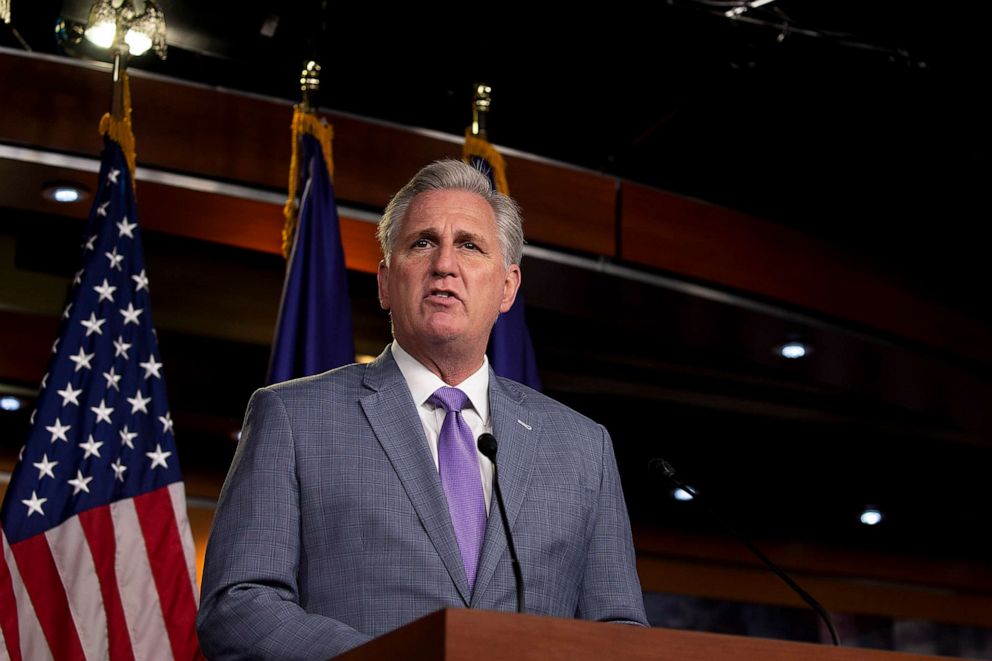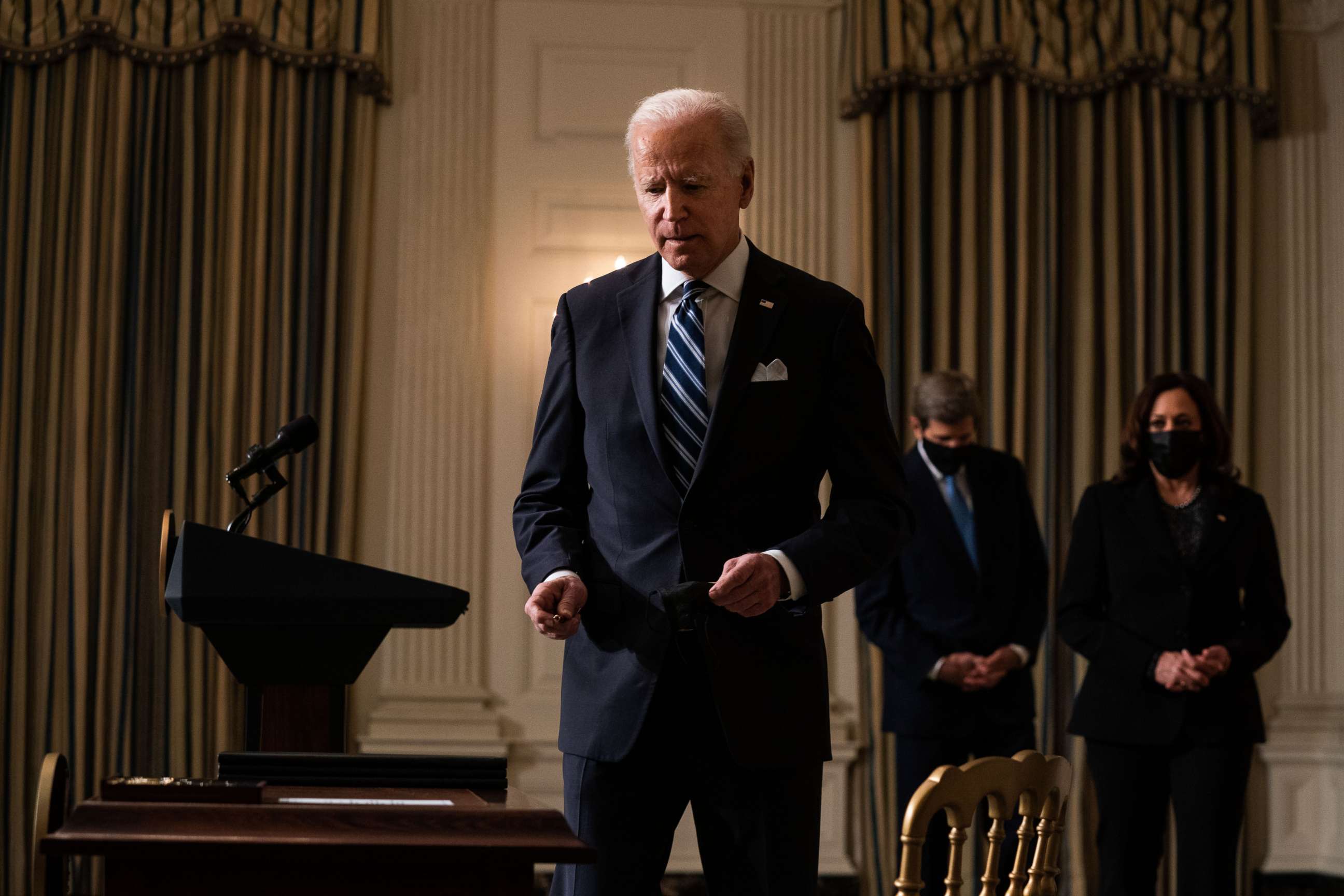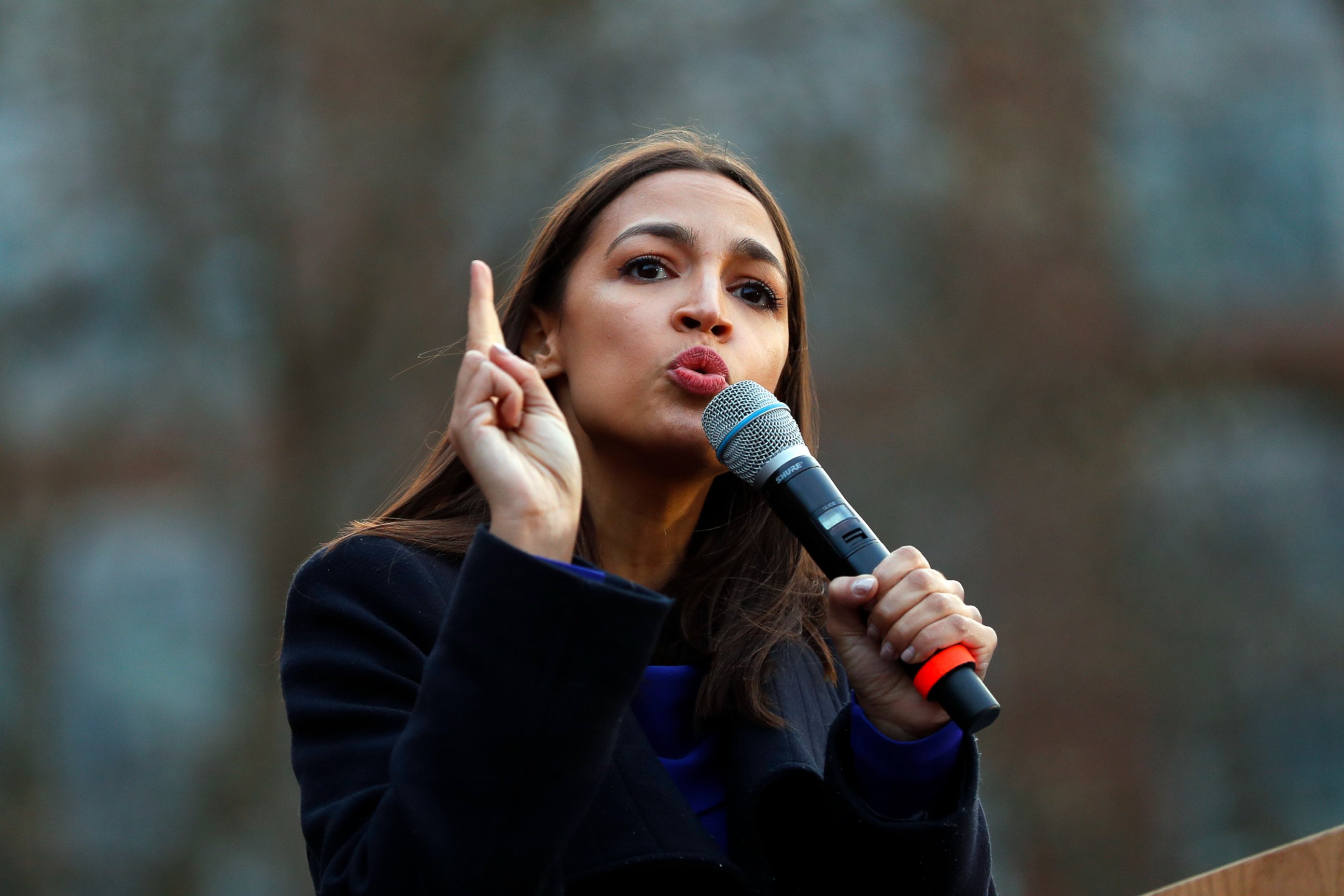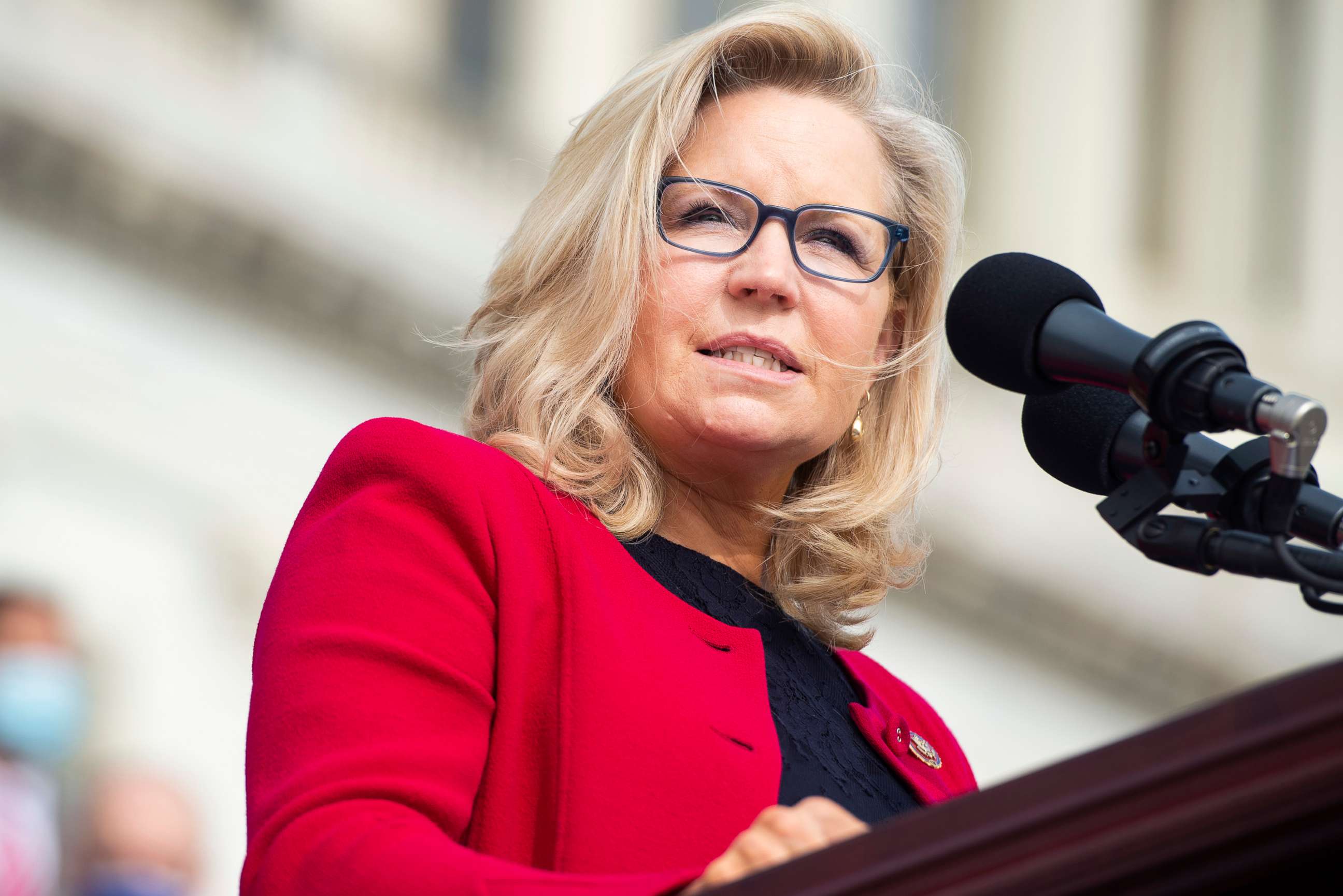Trump's influence grows in party with uncertain future: The Note
Trump is having some decent political breaks, even while mostly silent.
The TAKE with Rick Klein
It's a visit that carries importance that's both substantive and symbolic.
House Minority Leader Kevin McCarthy is expected to meet with former President Donald Trump on Thursday at Mar-a-Lago. The top House Republican and potential future speaker of the House is visiting the twice-impeached and still-to-stand-trial former president, just eight days after he left Washington before his successor was sworn in.
Things are breaking Trump's way -- despite or even because of the turmoil inside the Republican Party. State parties and activists are lining up behind him, prospects for impeachment conviction are fading fast and President Joe Biden's executive orders and progressive priorities are making it easier for the GOP to find unified messaging.

Perhaps most tellingly, intra-party fights appear riskier for those who stand against him than those who remain loyal -- at least for the moment. McCarthy visits Trump even as efforts move forward to oust the No. 3 House Republican, Rep. Liz Cheney, over her support for impeachment; McCarthy is in Florida, yet Florida Republican Rep. Matt Gaetz, a Trump loyalist, will be in Cheney's Wyoming on Thursday.
Republicans have a whole lot of work to do to figure out what the party needs to look like from here. But the fact that Trump is having some decent political breaks, even while mostly silent and under impeachment, says more than the tweets the former president can't send.
The RUNDOWN with Alisa Wiersema
Biden's signing of several executive orders that aim to tackle climate change signaled both a sweeping view of a complex issue, as well as his administration's most direct acknowledgement yet of progressive priorities. His focus on confronting "the existential threat of climate change" includes a Venn-diagram-like approach that also addresses racial inequity and job creation.

"With this executive order, environmental justice will be at the center of all we do, addressing the disproportionate health and environmental and economic impacts on communities of color, so-called fence-line communities -- especially those communities: Brown, Black, Native American, poor whites," the president said on Wednesday.
Biden added that he is planning to ensure those communities would "receive 40% of the benefits of key federal investments," including clean energy and clean water infrastructure. The move was immediately lauded by several progressives and Rep. Alexandria Ocasio-Cortez, who co-chaired Biden's advisory panel on climate change, even alluded to similarities between the White House's policy push and her "Green New Deal" proposal: "It's almost as if we helped shape the platform," she joked in a tweet.

But for other progressives, Wednesday's executive orders put a heavier spotlight on existing procedural hurdles. In a statement, Alexandra Rojas, the executive director of Justice Democrats, said that although Biden's announcement indicated "progressives are beginning to be heard," the president and Senate Majority Leader Chuck Schumer "must eliminate the filibuster to truly seize this once-in-a-generation opportunity to deliver results for working families."
Although the administration's emphasis on legislative urgency could intensify arguments for killing the filibuster, the rule doesn't appear to be heading toward elimination any time soon.
The TIP with Quinn Scanlan
RNC Chairwoman Ronna McDaniel wants Republicans unified, telling the Associated Press, "If we're fighting each other every day and attacking each other and brandishing party purism, we're not going to accomplish what we need to to win back the House and take back the Senate."
Not everyone is on board with that plan. Gaetz -- one of the former president's fiercest supporters -- is headed to the Wyoming state capitol Thursday to rally against the state's sole House representative, telling Fox News host Sean Hannity Monday: "We need better leaders in the House Republican conference. … Unfortunately, Liz Cheney is just yet another in a long line of 'America last' politicians."

But Cheney, the daughter of former Vice President Dick Cheney, has deep ties to her state. She easily beat out two primary challengers in 2018 and one of them again in 2020. She was also pegged the would-be front-runner had she pursued the Senate in 2020. Her leadership position affords the people living in the nation's least-populated state a seat at an exclusive table.
Stripping her of her leadership status -- and getting her out of office altogether -- is going to require more than a single Florida congressman crossing state lines. As former state Rep. Amy Edmonds put it in a statement provided to ABC News by the Cheney campaign: "Wyoming doesn't like it when outsiders come into our state and try to tell us what to do."
THE PLAYLIST
ABC News' "Start Here" podcast. Thursday morning's episode features ABC News Chief Business and Economics correspondent Rebecca Jarvis, who explains the curious stock market activity around Gamestock and other companies. ABC News Chief Investigative reporter Josh Margolin tells us why federal officials remain concerned about violence stemming from the Capitol insurrection. And ABC News' Stephanie Ebbs has more on President Joe Biden's ambitious climate agenda. http://apple.co/2HPocUL
ABC News' "Powerhouse Politics" podcast. Rep. Tom Reed, R-N.Y., a member of the Problem Solvers Caucus, said that he would support sanctions against members of the House who repeat violent rhetoric, like Georgia Rep. Marjorie Taylor Greene, who expressed support online for executing prominent congressional Democrats. "I'll support sanctions by the leadership that they feel appropriate in this matter," Reed said on ABC News' "Powerhouse Politics" podcast. "And I hope they do take measures that will send the message that this is unacceptable. And I would hope my colleagues on the left will do the same thing -- as those that hold posts of leadership on the left -- that engaged in this extreme rhetoric." https://bit.ly/2w091jE
WHAT YOU NEED TO KNOW TODAY
- President Joe Biden and Vice President Kamala Harris receive the President's Daily Brief in the Oval Office at 9:45 a.m. Biden will wign executive actions on health care at 1:30 p.m. and Harris will also attend.
- At 10 a.m. the Banking, Housing, and Urban Affairs Senate Committee will have a hearing to examine the nominations of both Marcia Louise Fudge to be secretary of housing and urban development, and Cecilia Elena Rouse to be chair of the Council of Economic Advisers.
- White House press secretary Jen Psaki holds a briefing at 2:30 p.m.
- Second gentleman Doug Emhoff visits a non-profit in Washington at 3:30 p.m.
Download the ABC News app and select "The Note" as an item of interest to receive the day's sharpest political analysis.
The Note is a daily ABC News feature that highlights the key political moments of the day ahead. Please check back tomorrow for the latest.




